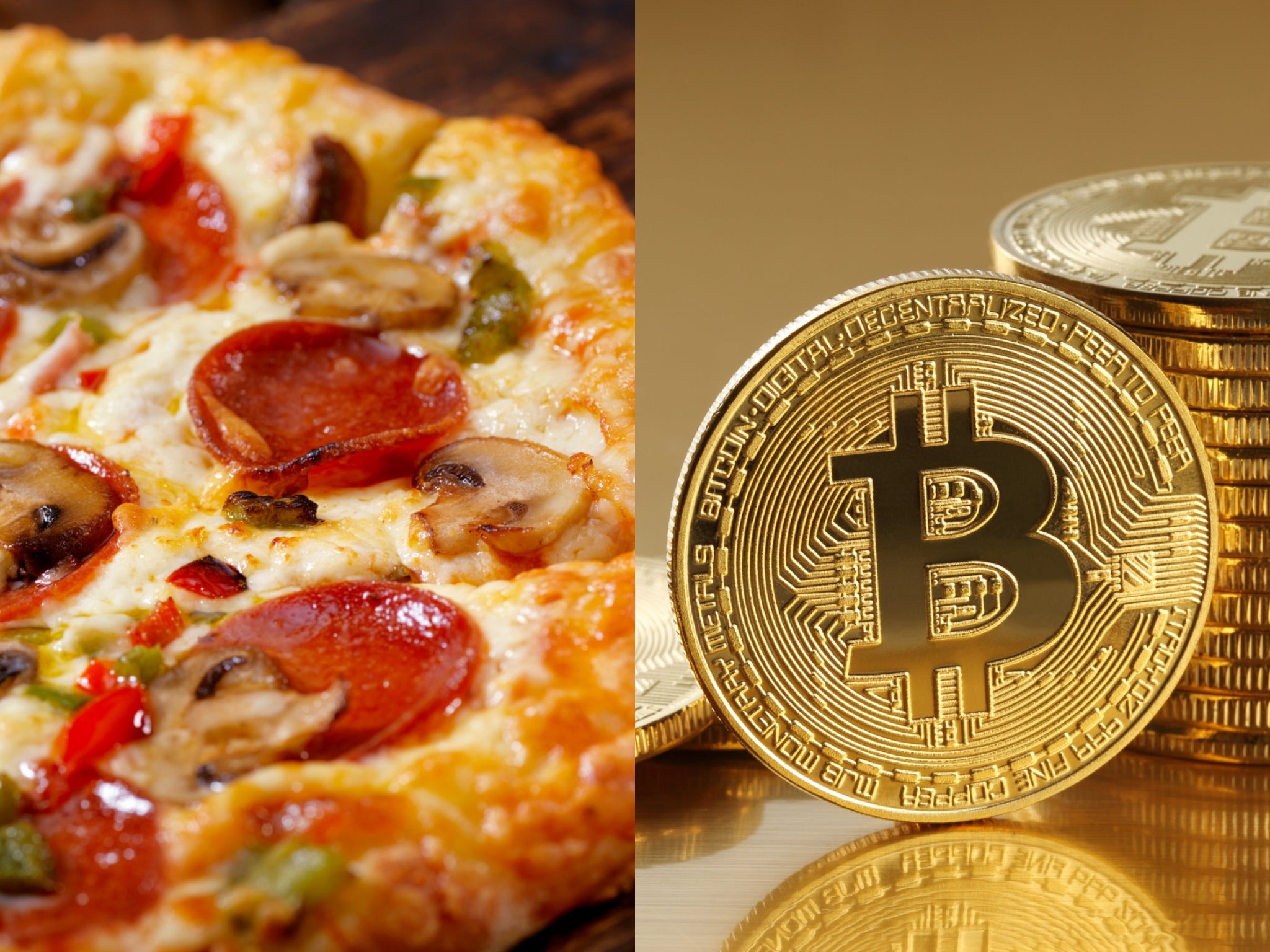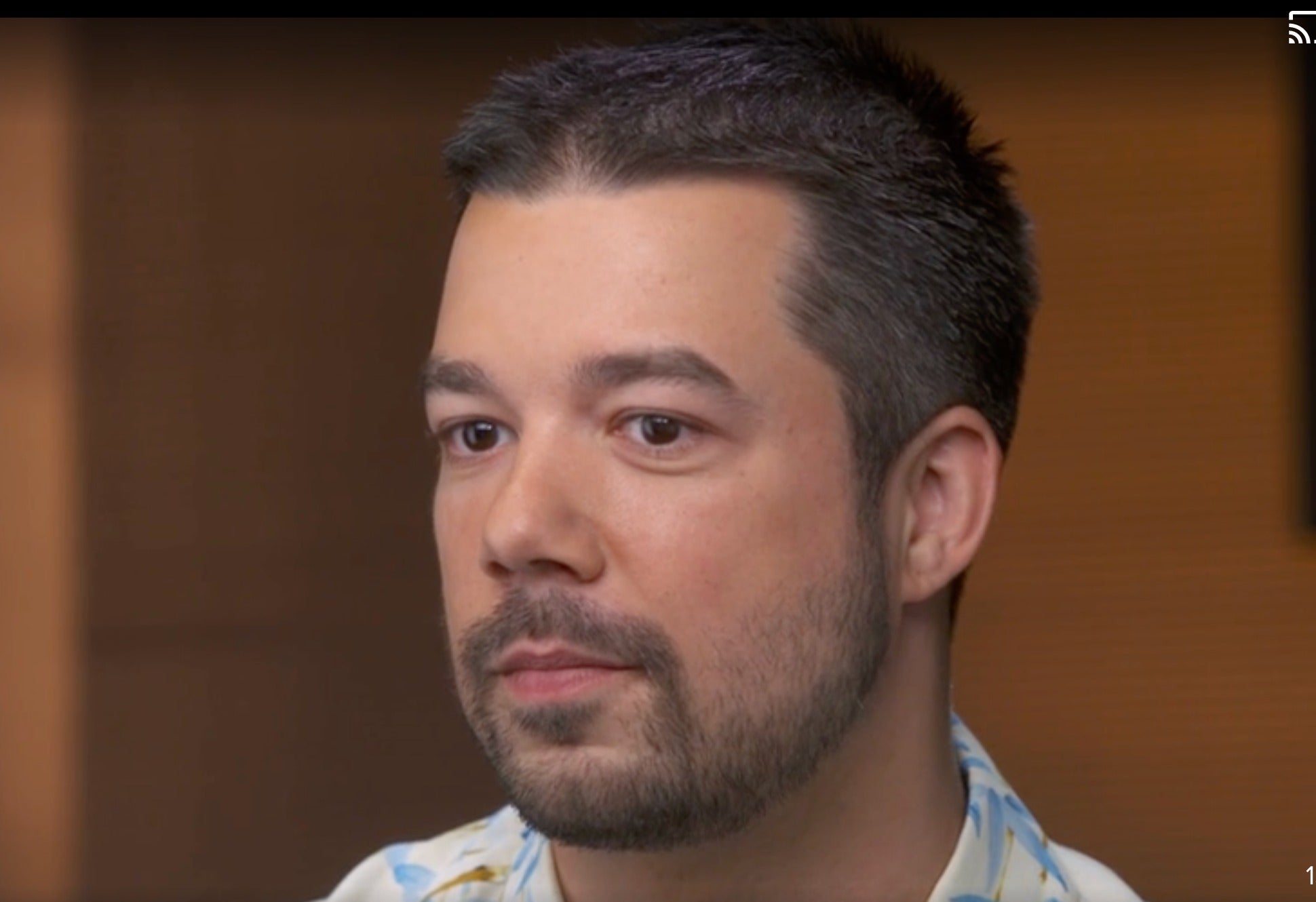‘No regrets’: Meet the crypto developer who spent $3.7 billion in Bitcoin on pizza
Laszlo Hanyecz paid Jeremy Sturdivant 10,000 Bitcoins for two pizzas in 2010 transaction

It is the pizza delivery that will go down in the history of cryptocurrency.
When Jeremy Sturdivant came across a request on an online crypto forum to send two large pizzas to computer programmer Laszlo Hanyecz in May 2010 he did not hesitate.
And in sending Mr Hanyecz the cheese and supreme pizzas from Papa John’s, Mr Sturdivant, then a 19-year-old student in California, earned himself $41 worth of the fledgling digital currency.
It is viewed as the first ever real-world Bitcoin transaction.
And amazingly over the course of 2010, Mr Hanyecz, who is now 39, estimates he spent 100,000 Bitcoin, or a current equivalent of $3.7bn, on pizzas alone.
And as of Tuesday those 10,000 Bitcoins that he paid Mr Sturdivant would have been worth a stunning $378.7m.
“I had no idea how huge it would become,” said Mr Sturdivant, who did not hold onto the Bitcoin but quickly spent it on traveling.
And he added that he was “proud to have played a part” in the “global phenomenon” that Bitcoin has become.
“If I had treated it as an investment, I might have held on a bit longer,” Mr Sturdivant admitted in 2018.
“I would never have thought that the same number of bitcoin would have a purchasing power on the order of real estate.”
It all started when Mr Hanyecz posted the pizza lunch order for himself and his children on bitcointalk.org on 18 May 2010.

“I’ll pay 10,000 bitcoins for a couple of pizzas.. like maybe 2 large ones so I have some left over for the next day. I like having left over pizza to nibble on later,” he wrote.
“You can make the pizza yourself and bring it to my house or order it for me from a delivery place, but what I’m aiming for is getting food delivered in exchange for bitcoins where I don’t have to order or prepare it myself, kind of like ordering a ‘breakfast platter’ at a hotel or something, they just bring you something to eat and you’re happy!
“I like things like onions, peppers, sausage, mushrooms, tomatoes, pepperoni, etc.. just standard stuff no weird fish topping or anything like that. I also like regular cheese pizzas which may be cheaper to prepare or otherwise acquire.
“If you’re interested please let me know and we can work out a deal.”
Bitcoin was launched in 2009 and would not reach a one to one ratio with the US dollar until 2011, and the transaction has gone on to inspire an annual Bitcoin Pizza Day celebration each May.
“I wanted to do the pizza thing because to me it was free pizza,” he told Bitcoin Magazine in 2019.
“I got pizza for contributing to an open-source project. Usually hobbies are a time sink and money sink, and in this case, my hobby bought me dinner.”
And he told Coin Telegraph that he was happy to have played a part in Bitcoin’s real-world development.
“I think that it’s great that I got to be part of the early history of Bitcoin in that way,” he said.
“I’d like to think that what I did helped. But I think if it wasn’t me, somebody else would have come along.”
Join our commenting forum
Join thought-provoking conversations, follow other Independent readers and see their replies
Comments
Bookmark popover
Removed from bookmarks